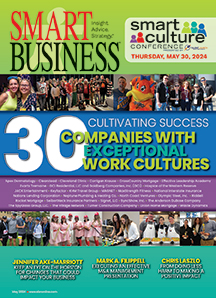
David Zick doesn’t expect his company to grow without a little stretching of his own.
“I kiddingly tell people that I try to run the company from the seat of my pants. And although I’m heavier than I used to be, the company grew faster than I was able to get fatter,” jokes Zick, the president of Group Associates Inc., whose plan for growth is more intentional than he makes it sound.
Zick founded the company in 1986 to provide employee benefit plan management solutions to companies, and Group Associates continues to soar, growing 25 percent in 2008 to revenue of $11 million.
Zick’s own growth, then, is not far behind.
“I realized that if the company was to continue to grow, that I have to grow too,” he says. “I can’t just expect the company to grow and grow and me to be the same.”
So he encourages his 80 employees to challenge his decisions and push him out of his comfort zone.
Smart Business spoke with Zick about empowering your employees to stretch your limits.
Avoid micromanaging. You can’t micromanage growth. You have to empower others. Only by multiplying yourself through other people and letting them make decisions can you grow.
What I do instead of micromanaging is I just ask for very regular updates in terms of the progress. I want to know as you go through this process what you’re doing and that you’re making progress toward getting it done.’
But then you have to back away and not watch them do it. You have to walk away from it.
Tell employees they’re empowered. I told the employees in the newsletter that if they know of a better way to do something, don’t just assume that somebody else figured out that the way it’s being done right now is the right way. If they see something that’s being done that they think is wrong, it might not be wrong, but ask. Say, ‘I see that this is happening. From what I know, it doesn’t look like it’s right,’ recognizing that they don’t know everything.
I’d rather somebody question something before it’s in front of our client than to have our client come back and say, ‘This is wrong,’ and then have an employee say, ‘I thought it was wrong.’ So we encourage employees to come to us.

